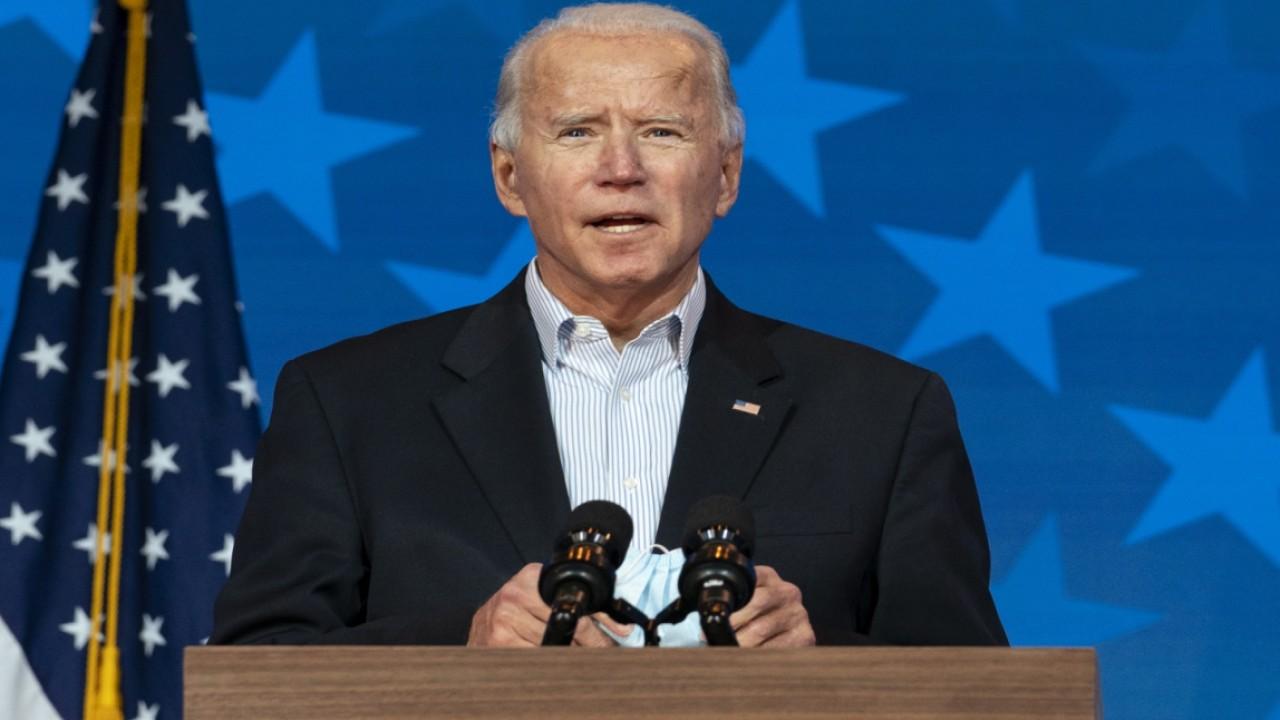Congress unlikely to pass coronavirus relief deal before January
Speaker Nancy Pelosi and Treasury Secretary Steven Mnuchin feuded publicly over it
The odds of Congress striking a coronavirus relief deal before January remains slim, with the outlook for an agreement clouded by split election results that empowered both Democrats and Republicans.
Although Fox News projected that Joe Biden won the presidential election against incumbent Donald Trump, Democratic hopes of a "blue wave" that could sweep them back into power in Washington failed to materialize.
House Democrats saw their majority nearly eroded, while Senate control hinges on a pair of races in Georiga that were pushed to a January runoff.
“We continue to think that a stimulus plan is more likely to pass in January 2021 than before year-end 2020,” Stifel chief Washington policy strategist Brian Gardner wrote in an analyst note Monday.
US ECONOMY ADDED 638,000 JOBS IN OCTOBER AS UNEMPLOYMENT FALLS TO 6.9%
For months, Congress has struggled to reach an agreement on another round of emergency relief for families and businesses after passing the $2.2 trillion CARES Act in March at the beginning of the pandemic.
Negotiations collapsed days before the Nov. 3 election, with House Speaker Nancy Pelosi and Treasury Secretary Steven Mnuchin feuding publicly.
House Democrats had put forward a $2.2 trillion offer -- down from their initial proposal of $3.4 trillion -- while White House officials agreed to spend as much as $1.8 trillion. Senate Republicans, meanwhile, lobbied for a smaller $500 billion relief package. But the two sides were unable to reconcile key policy differences on issues such as a virus testing plan, aid to state and local governments and tax cuts for low- and middle-income families.
Although lawmakers have indicated they will try to pass legislation targeted at the economic fallout from the pandemic during the lame-duck session, the period after the election but before newly elected officials are sworn in, it's unclear whether they'll be successful.
Senate Majority Leader Mitch McConnell -- who will be taking the lead on virus negotiations, according to a source familiar with the talks -- said last week that Congress should pass a spending bill before the end of the year, a reversal from his stance prior to the election. The source said the administration made its best and final offer, the $1.9 trillion deal, in the weeks before the election.
MCCONNELL URGES WHITE HOUSE NOT TO MAKE VIRUS RELIEF DEAL WITH PELOSI
That likely means McConnell will put forward the "skinny" $500 billion deal that Democrats previously rejected. During a press conference Friday, the Kentucky Republican pointed to GDP growth in the third quarter and the October employment report as evidence the economy is recovering faster than expected from the virus-induced downturn.
“Our economy is really moving to get back on its feet. That, I think, clearly ought to affect what size of any rescue package we additionally do,” McConnell told reporters in Kentucky last week. “Something smaller, rather than throwing another $3 trillion at this issue, is more appropriate.”
But with Georgia's elections less than two months away and control of the Senate hanging in the balance, McConnell may be more willing to up his offer, according to Gardner.
“We think McConnell wants the two Republican candidates in the Georgia run-off elections to be able to campaign on support for a Covid relief package,” Gardner wrote. “He might accept a bigger deal, but we are skeptical that House Speaker Nancy Pelosi will give in on her demands, especially if it might help the GOP candidates in Georgia.”
TRUMP SAYS HE WANTS A BIGGER CORONAVIRUS RELIEF PACKAGE THAN PELOSI'S $2.2T PROPOSAL
Pelosi called on the administration to return to the negotiating table during a Capitol Hill press conference on Friday.
"We want the White House to come back to the table," she told reporters.
Asked about a smaller relief bill, Pelosi once again pushed back: "No," she said. "It doesn't appeal to me at all. They haven't agreed to crush the virus ... That isn't anything we should be looking at."
Lifelines that propped up the economy in the early weeks of the pandemic — like the $670 billion Paycheck Protection Program, a one-time, $1,200 stimulus check, and sweetened unemployment benefits — lapsed months ago.
On top of that, millions of laid-off workers could lose their jobless benefits altogether by the end of the year, with the enhanced unemployment benefits that Congress approved in March set to expire on Dec. 31.




















